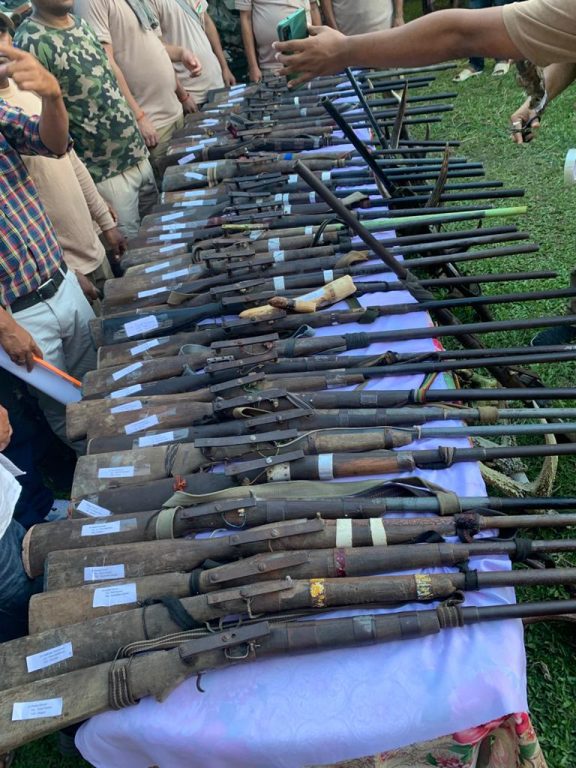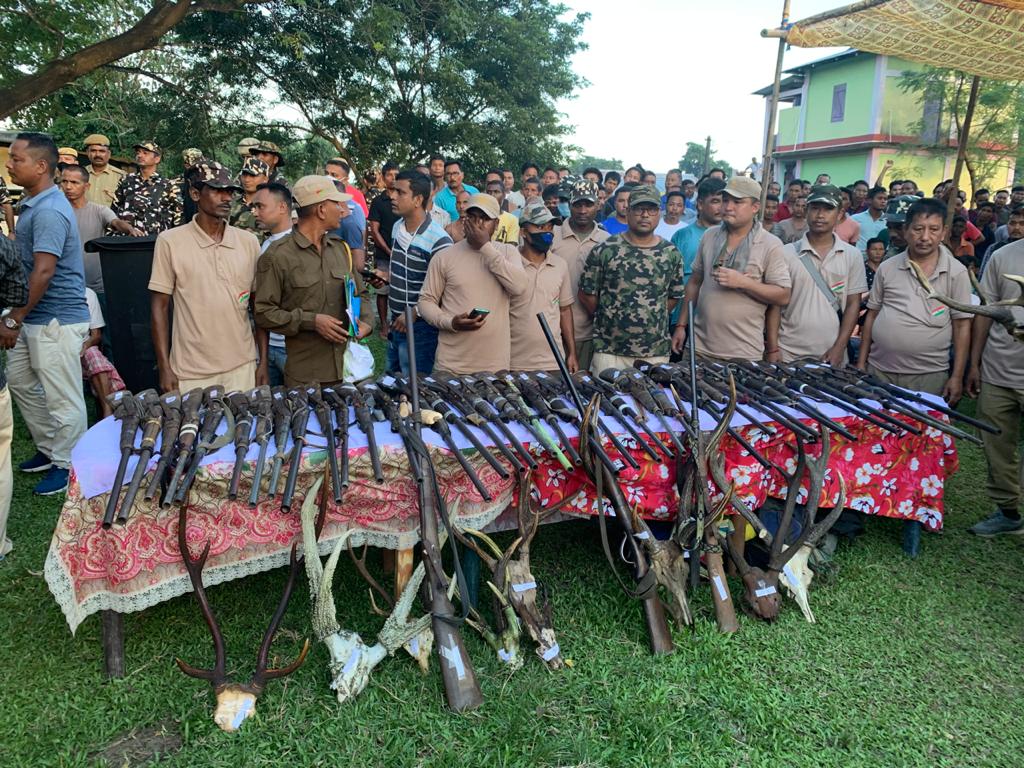The people of Bodoland Territorial Region, Assam, are no strangers to official functions where insurgents lay down arms in a symbolic gesture of surrender and pledge to lead a normal life. However, this month, they witnessed ceremonies where 264 poachers carrying firearms and animal trophies surrendered in batches before the administration. What made these men come overground and surrender? Was it fear of getting arrested or was it some incentive bait?
In an exclusive interview to Indian Masterminds, CCF and Chief Head of Dept, Environment and Forests, Bodoland Territorial Council (BTC), Anurag Singh IFS answered these questions and, also, dwelled upon the larger issue of social malaise that leads to such illegal activities.

COAXED INTO SURRENDER
The Bodoland Territorial Region in Assam is rich in wild flora and fauna biodiversity and has two national parks and two wildlife sanctuaries. Of them, the Manas Tiger Reserve is a World Heritage Site and a biosphere reserve. However, in the last three years, poaching incidences had increased in these forests.
Alarmed forest officials started hunting for ways to stop it but did not want short term fixes. So, they decided to target the root cause of poaching, which is poverty. They started negotiating with poachers, offering them incentives to come overground. This pragmatic approach worked, and 264 poachers surrendered in batches with their guns, grenades, and animal trophies.

“We started approaching groups of poachers to make them change their mind through an NGO named Golden-Langur. Few meetings were held with individuals also, to show them that we are very positive in our approach. We wanted them to surrender without fear of any prosecution if they lay down arms and join the mainstream,” Mr. Anurag Singh told Indian Masterminds.
POVERTY LED TO POACHING
The root cause of all evils is money, or the lack of it. The 1998-batch Indian Forest Service officer said that extreme poverty pushed these men into poaching for easy money. Wild animal parts have a big market in some Southeast Asian countries. Small offer of cash was enough to lure these men into the illegal wildlife trade.
“These people come from extremely poor background. Mostly they are landless and do not have any means of sustenance. They are not from any organised gang of poachers or smugglers. They generally operate in groups of three to four,” the officer said.

OFFERED INCENTIVES
And how did they manage to convince the men to come overground and surrender? Mr. Singh revealed that they offered them certain incentives:
“1. No prosecution under Wildlife Protection Act for any crimes. 2. Immediate monetary relief. 3. Self-sustaining schemes for family members. 4. Involvement in tourism-related activities.”

REHABILITATION AFTER SURRENDER
And, as promised, a rehabilitation package was offered right after their surrender.
“A sum of Rs 50,000 was offered by BTC Chief, Shri Pramod Boro, to poachers who surrendered with arms and animal trophies as monetary relief. Two weaving clusters (traditional textile) were given to the entire group of poachers. It was also decided to impart tourist guide training to all of them for self-sustenance. In fact, we have already organised three such training camps through Wildlife Trust of India,” the officer informed.

MAKING FOREST DWELLERS SELF-SUSTAINED
Mr. Singh also analysed the reasons that make some people living on the fringes of sanctuaries take to poaching and revealed his strategies to address them:
“Tribal people mostly depend on forests for their needs. But with increasing pressure on the forests, there is an imbalance. To ensure right balance, it’s important to adopt a two-way approach. First, discourage destruction of flora and fauna by importing strict regulations and involving local people. Second, ensure self-sustaining employment of people through allied activities like live fish farming, weaving, handicrafts development, establishing market linkages, etc.”

TAPPING TOURISM FOR JOBS
While informing that 36% of land in Bodoland Territorial Region comprises of lush green and rich forests, the officer said, “It is the need of the hour to ensure conservation, boost tourism, self-employment, research and education in the region.” He talked about the Master Plan:
“Forest department of BTC, along with other line departments, is preparing to develop tourist facilities, home stays and adventure activities in the region. There is also a plan to develop a Forest School & Climate Research Centre and a Hotel Management Institute to ensure sustainable employment for the youth.”

Finally, Mr. Anurag Singh revealed that with so many incentives being offered, 150 more poachers are now willing to surrender, and steps are being taken to bring them to mainstream. When there is right political will and prompt follow-up by administration, conservation of forests and biodiversity can be easily ensured, he remarked.




































